|
I can recall from a very young age pondering what it means to be Catholic. We were supposed to somehow be different from secular society by the way we lived our lives, but how or why was that any different than simply being a good, kind, and moral human being? Can “normal” domestic life be holy? Why is the domestic church—the Christian family—so vitally important to our faith? Throughout my life, this question has been answered in various ways and degrees. However, nothing has been so powerful as what I have witnessed in the past few months. In the late fall of last year, my mother-in-law underwent unexpected surgery and was unable to attend Mass. During our family’s Thanksgiving visits, I witnessed an incredible moment of our faith: my mother was able to distribute the Sacred Body of our Lord to my mother-in-law. Tears fell from my mother-in-law’s eyes as my husband, father, mother, and I encircled her, reciting prayers together in preparation for the distribution of the Eucharist. I was struck by the immensity of this moment: as I witnessed the woman who gave me life distribute the source of eternal life to the woman who gave my husband life, the depth and vital importance of the domestic church began to come into clearer focus for me. The Christmas season would bring me another unexpected intersection of family and faith and another reminder of the significance of the domestic church. My father was hospitalized between Christmas and New Year’s; I found myself once again in the midst of a family circle of prayer as this time I witnessed my sister ministering the Sacred Body of our Lord to both my father and mother. My husband, nieces, nephew, brother-in-law, and I encircled my father’s hospital bed. Again, I found myself struck by the immensity of the moment unraveling before me; there is something very profound in witnessing the physical, tangible presence of Christ enter into vulnerable family space. I held these moments in my heart and in my mind, reflecting on them as the days rolled by between the holidays and the beginning of Lent. This year, our parish announced that they are encouraging families to consecrate themselves to the Holy Family. Ah, the Holy Family, the perfect model of the domestic church! It is within the context of the family that we learn about our faith and see examples of faith lived out. Christ Himself was born into a family; it was a vital part of his plan of salvation. We are each called to sainthood and each of our paths to sainthood will look a bit different. Lent is a beautiful time to really evaluate how close we are to following that path and what we can do in our lives to stay the course. No matter what path our calling leads us on, all paths lead back to the family—whether that be our own family by blood or our brothers and sisters in the faith. How do we live out each day as a domestic church and bring that holy reverence to our everyday lives? We are called not only to love one another but to LIVE for one another. I witnessed this profoundly over the holidays when I saw different members of my family live for and serve one another. But there are also opportunities being presented throughout our everyday life to grow in holiness and spiritual maturity—especially now during this Lenten season. Lent is not only a time to deny ourselves of those things that keep us from our path to sainthood but also a time to invite the Holy Spirit to open our eyes and hearts to opportunities of everyday holiness and saintly domesticity. Christ wants to be a living presence in our homes and in our families, but we have to open the door for Him and invite Him in. I saw the effects of Christ’s presence in my family in those moments when He was brought physically to my parents and mother-in-law. Christ brings unity, service, strength, love. Just as in our physical lives we can manage the stresses and craziness of ever day life better when we fuel our body with proper nutrition and exercise, so too are we called to fuel our spirits and our family bonds with the Bread of the angels and on every word that comes forth from the mouth of God. What spiritual exercises can we work through together as a family this Lenten season? How can we work to call one another to a life of saintly domesticity? For more resources to accompany you throughout your Lenten journey, please click here. To learn more about Marriage and Family, please click here.
0 Comments
“Remember you are dust and to dust you shall return.” We are now over a week into our Lenten journey; the reality has set in. We are questioning our decisions to give up sweets or the snooze button, and we are tired. Perhaps we have even failed a few times. The forty days seem to drag, and the somberness of the liturgical season has made itself known. Yet during the Ash Wednesday service at my parish, our priest was talking about the joy of the season and how our failures are meant to bring us closer to Our Lord. In a word, he talked about the hope of Lent. As someone who would rather stay in the joy and light of the Christmas season, I was really challenged by Father’s perspective, especially now, after my many failed attempts to give up the snooze button. We often focus so much on the “giving up” aspect of Lent that the words joy and hope do not seem to go hand in hand with this season. This is especially true when I think of the phrase that kickstarts our Lenten journey: “Remember you are dust and to dust you shall return.” On a superficial level, this sign on our forehead doesn’t look so good. Where are the hope and joy in having ashes smeared on your forehead? Throughout his homily, Father also encouraged us to change our perspective on the difficult acts of penance we are attempting and instead to live in the reality that this season could be a time of true conversion of heart. Our Lord desires us to be holy! The acts of penance we choose could be the very means He uses to break us of habitual sin and to bring a deeper level of charity into our hearts. Conversion of heart and holiness? I could get behind that; I can see the joy there! The priest did not say “if you fail your resolutions” but “when you fail.” This is a reminder of our weakness and utter dependence on Jesus, who will be making His way to Calvary soon, in Scripture, to save our souls. This dependence on Him will assist in our conversion of heart, considering “we can do nothing without him” (John 15:5). So: it’s alright to fail, but run back to Him. Beg Him for more grace! Now let’s read this sentence from the Ash Wednesday service one more time: “Remember you are dust and to dust you shall return.” Where is the hope there? Father explained that this is the most hopeful reality yet. Ultimately this reminder of our sinfulness and our death paradoxically represents the life we have in Christ, the Resurrection of Jesus, and the hope we have of entering into the Eternal Reward. Even though the phrase seems bleak, it can propel our hope throughout these 40 days. We have something to strive for, to live for, and to love for. Though I have failed at my Lenten resolutions more times than I have not, I pray with the hope that my humanity might be resurrected, that Our Lord may convert my sinful ways, and that I may remember that this liturgical season is less about what I do and more about what the Lord is doing in my heart to get me home. What are ways you need to be renewed in hope and joy? How can you accept the failures that come with penance and run to Jesus this Lenten season? “Remember you are dust and to dust you shall return.” For more resources to accompany you on your Lenten journey, please click here. The next forty days of Lent are Mother Church’s annual call to intense prayer, fasting, and almsgiving oriented towards embracing God as the center of one’s life and repenting of all which distracts us from Him. With the current crisis for the Church in the United States, it seems that the Church could really use a good spiritual renewal, cleansing, and renunciation of sin often focused on during the season of Lent. As parts of the Body of Christ[1], we are all too aware how an affliction experienced (or caused) by one part affects us all. Recall the words of St. Paul, “Rejoice with those who rejoice, weep with those who weep... Do not be conquered by evil but conquer evil with good.”[2] The Church is suffering but, just as she always has, she will ultimately be restored for the glory of God. As laity, you and I are key to addressing this scourge, along with the Church’s holy clergy and religious, and to affirming God’s presence in our lives not just in the Lenten season, but every day.
Though a time of repentance, Lent is not a time of despair or hopeless suffering; this season reminds us that God, although saddened by our repeated failings, never closes Himself off from offering mercy and love to the broken, the sinner, and the lost. Lent is not a diet, nor a fad of living without something trivial, nor even a temporary spiritual renewal; it must take root—free from the sin which prevents this—and be nourished over the coming weeks to strengthen us throughout the whole year. Above all, Lent prepares us for the celebration of Easter. Christ has died, Christ is risen, Christ will come again; the Church suffers, the Church is renewed, the Church shall be restored! The abuse scandal today may cause people to feel abandoned, angry, confused, and sad. “How can this be happening?” is certainly a question in our hearts and homes these days. It is important to remember that Jesus Christ, the same “yesterday, today, and forever,”[3] reigns over the Church. He is omnipotent, divinely good, and eternal; Let us take courage in the truth that our faith is ultimately in Jesus Christ. Because our Lord remains faithful to us[4] and ever close to His bride, the Church, He gives us the strength to recommit ourselves to renouncing the evil in our sight that threatens to drive us away from God and His Church. Lent is the perfect opportunity to facilitate spiritual renewal, not only for ourselves but also for the greater Church. Following the example of Jesus’ time in the desert before commencing His public ministry, the faithful are invited to reflect on the state of the Church, pray for strength, courage, justice, and healing, and even seek accountability in the governance of the Church. Personal penance can be made for our own failings, but reparation must also be made to address this scandal and to unify God’s people to prayerful and peaceful action in seeking God’s healing grace to move forward. Over the next 40 days, let us care for the Church by promoting healing among ourselves, supporting the afflicted and needy, addressing sin and divisions, and always proclaiming Christ to each other and the world. For more resources to accompany you throughout the Lenten season, please click here. [1] cf. Lumen Gentium, 33. [2] Romans 12:15, 21. [3] Hebrews 13:8. [4] cf. 2 Timothy 2:13. On September 14th, we celebrate the feast day of the Exaltation of the Holy Cross. In the Gospel of John, Jesus tells us: “No one has greater love than this, to lay down one's life from one's friends” (John 15:13). That love is never more evident than our Lord's passion and death on the Cross. By that Holy Cross, we have been redeemed. Jesus Christ foretold his Passion to the Apostles, instituted the Eucharist at the Last Supper, and fulfilled God's plan for human salvation at Calvary upon that Holy Cross. This, my friends, is the greatest love ever known to humankind; by the grace of God, we will come to know the fullness of God's love in eternity. The promise of eternal salvation was made possible upon that Cross and we, as Catholics, are called to pick up our cross and follow Christ daily. This is a very hard thing to accomplish in today's world.
Jesus gave us the Holy Spirit at Pentecost to guide and strengthen us while following his commands. Paul tells us: “I have the strength for everything through him who empowers me” (Philippians 4:13). Jesus Christ empowers us with the Holy Spirit today just as he did with the Apostles. It is exactly that God-given power that we need in today’s often secular world to preach Christ crucified and “fight the good fight,” as St. Paul says. For if we profess Christ without recognizing and living his sacrifice on the Cross, we cannot be disciples of the Lord. Peter found that out when Jesus admonished him after the foretelling of his passion and death. I keep written on my desk calendar in my office and in my daily liturgical calendar, a Latin phrase that I think summarizes this idea: Lex orandi, Lex credendi, Lex vivendi - As we worship, So we believe, So we live. As we worship, so we believe, so we live. We must, through worship and prayer, “Love the Lord, your God, with all your heart, with all your soul, and with all your mind” (Matthew 22:37). We must believe all that Jesus has taught us, that he is our Lord and Savior, and that he suffered and died so that we may live. We must live out our faith in what Jesus has called us to do by spreading the good news and picking up our cross and following our Lord. This is not an easy task. It isn't easy being a Christian. Christ never said it would be easy. Being a Christian is not just being a member of a religion, it is our way of life. We live the faith Christ gave to us. When we struggle with this, when we get lazy or complacent with our prayer time, or if we need a reminder of just how much we are loved and what our calling is, we need only to gaze upon the Holy Cross. We can also reflect on the Prophet Isaiah, when he told us exactly what Christ has done for us and for the salvation of man: "Yet it was our pain that he bore, our sufferings he endured. We thought of him as stricken, struck down by God and afflicted, but he was pierced for our sins, crushed for our iniquity. He bore the punishment that makes us whole, by his wounds we were healed" (Isaiah 53:4-5). Brothers and sisters in Christ, we celebrate the Feast of the Exaltation of the Holy Cross.” Remember, worship, believe, and live in the glory of Christ crucified! *This post was originally published on September 11, 2014. Mark A. Straub Sr. is a member of the Knights of Columbus and president of the parish council of Our Lady of the Woods Parish in Woodhaven, Michigan. It’s 4:30 in the morning and my husband and I are awoken by cries from our 11-month-old son in his room. He has taken to an early wake-up for quite a few weeks and despite knowing that he’s been sick and teething and that babies simply have no schedule but their own, I think to myself, “Shouldn’t he be sleeping through the night?” My husband brings him to me to nurse and slips back into bed. Although this trial of losing sleep is trivial I pray, “Lord, we have given up everything and followed you.”
The other day we got the news that our car needs another expensive repair. My husband and I analyzed our budget: there’s the mortgage, daycare, food, regular car expenses, and student loans. We also want to have more children and show them the world, and we want to give so much more to our community than we currently are, but where is there room in our constantly strained budget? I express my fear and I cling to the words, “Lord, we have given up everything and followed you.” Today’s Gospel catches us right after a rich man asks Jesus what he must do to inherit eternal life, and “Jesus, looking at him, loved him and said to him, ‘You are lacking in one thing. Go, sell what you have, and give to [the] poor and you will have treasure in heaven; then come, follow me’” (Mark 10:21). I can hear Peter, filled with earnest love and total concern as he looks up to Jesus and begins to say the opening line of today’s Gospel: “We have given up everything and followed you.” He has left his family and career to serve Jesus. He is traveling with these men and learning from Jesus every day. His faith is tested, and he fails multiple times – walking on and beginning to drown in the sea and eventually to deny the Lord not once, but three times over at His Passion. Despite these failings, I imagine the Lord’s tenderness and faithfulness as he looks to Peter and says: “Amen, I say to you, there is no one who has given up house or brothers or sisters or mother or father or children or lands for my sake and for the sake of the gospel who will not receive a hundred times more now in this present age: houses and brothers and sisters and mothers and children and lands, with persecutions, and eternal life in the age to come. But many that are first will be last, and [the] last will be first.” (Mark 10:29-31) This is the promise of the Christian life: the gift of hope that comes with the witness of the Gospel and the life of Christ. Despite our sufferings, trials, and sacrifices, there’s the promise of eternal life with Jesus where every ache of our heart will be healed and every thirst satiated. Consider the fear and hurt, for example, of those who feel called to marriage, but haven’t yet found “the one.” Or how about the tears an infertile couple might shed for all the babies they have never held? God fills these holes and seals them one hundred times over. Even something that seems trivial, such as a failing grade, a mistake at work, or sleep lost during a 4:30 a.m. nursing session – even those losses will be fulfilled in ways that we cannot imagine. It’s hard to fathom how that wholeness is possible in our broken world, but as Jesus reminds us: “All things are possible for God” (Mark 10:27). In contemplating Jesus’ promise to us, this call to the Christian life, and our goal of striving towards heaven, we know that this work is not easy or glamorous, but it can be holy if we let it. In your everyday yeses to sacrifices big and small, God promises you a lifetime with Him. Do not lose hope when you make a sacrifice or you feel the hurt in your heart: it is seen and felt and loved by the Lord. He uses those feelings to bring you closer to Him and His promises. He wants to love you in your sacrifices. The Lord promises to bring His goodness through your holy work as you choose Him each day (Romans 2:6-10). And it is in that love that we can sacrifice with the confidence of Christian hope and gratitude, “Lord, we have given up everything and followed you.” Alyce Shields is a teacher in Washington, D.C. 5/9/2018 Everyday Holiness (Part 2): 10 Quotes from Pope Francis' Apostolic Exhortation to Help You Be Holy in Today's WorldRead NowOn April 9, the Solemnity of the Annunciation of the Lord, Pope Francis released his latest Apostolic Exhortation: Gaudete et Exsultate (Rejoice and Be Glad): On the Call to Holiness in Today’s World. This is the third Apostolic Exhortation of his papacy, following Evangelii Gaudium, the Apostolic Exhortation on the Proclamation of the Gospel in Today’s World and Amoris Laetitia, a post-synodal Apostolic Exhortation on Love in the Family. What was his goal? “To re-propose the call to holiness in a practical way for our own time, with all its risks, challenges and opportunities" (GE 2). Without delving too much into a theological or heady definition of holiness, Pope Francis invites us simply and straightforwardly to open ourselves to the specific and unique mission God has created us for. In this, he says, lies true joy and freedom. Our Holy Father takes us back to the Source of Holiness, Jesus Christ, and encourages us to look to the Beatitudes as guides for holiness. Below, I’ve compiled some of my favorite quotes and key take-aways from this approachable, yet profound, exhortation. 1.“A person’s perfection is measured not by the information or knowledge they possess, but by the depth of their charity.”-GE 37 It is tempting to leave the task of holiness to theologians, the clergy, or those who work for the institutional Church. Here, Pope Francis reminds us that holiness is not all about intellectual knowledge, our ability to quote the latest Church document, or the Catechism. While knowledge of the Faith certainly is important, our holiness is measured by the amount of love with which we infuse all of our actions. I can’t help but think of St. John of the Cross’s quote: “In the twilight of life, God will not judge us on our earthly possessions and human successes, but on how well we have loved. 2. “Jesus explained with great simplicity what it means to be holy when he gave us the Beatitudes (cf. Mt 5:3-12; Lk 6:20-23). The Beatitudes are like a Christian’s identity card…In the Beatitudes, we find a portrait of the Master, which we are called to reflect in our daily lives.” -GE 63 I love that Pope Francis ultimately leads us to Scripture and to Jesus Christ Himself as the model and teacher of holiness. It can get overwhelming trying to be holy and define holiness in our modern world. The Beatitudes, Pope Francis says, are like a “Christian’s identity card.” They point us directly to holiness and guide us along the way. Spending time reflecting on each of the Beatitudes will help us to better understand what it means and looks like to be holy. 3. “It is true that the primacy belongs to our relationship with God, but we cannot forget that the ultimate criterion on which our lives will be judged is what we have done for others. Prayer is most precious, for it nourishes a daily commitment to love. Our worship becomes pleasing to God when we devote ourselves to living generously, and allow God’s gift, granted in prayer, to be shown in our concern for our brothers and sisters.” –GE 104 Here, Pope Francis is reminding us that our prayer must lead to action. We cannot be holy in a vacuum, but are called to live out holiness amidst our brothers and sisters. Service to the world, as promoted by Catholic Social Teaching, is crucial if we are to be true followers of Christ. While our relationship with God always comes first, this relationship turns our gaze outward in order to foster and build relationships of love, service, and communion with our brothers and sisters. 4.“Far from being timid, morose, acerbic or melancholy, or putting on a dreary face, the saints are joyful and full of good humour. Though completely realistic, they radiate a positive and hopeful spirit.” -GE 122 Holiness leads to joy – this is the true fruit of our living a holy life. As Christians, we are called to exude the joy of the Resurrection and of the Gospel in the midst of a world plagued by sin, brokenness, and suffering. While holiness is joyful, is does not exist in an alternate reality, but embraces the truth of the world in which we live. Pope Francis says that this holiness is “realistic” and allows us to engage the world while still looking beyond it to the glory of eternal life. 5. “God is eternal newness. He impels us constantly to set out anew, to pass beyond what is familiar, to the fringes and beyond. He takes us to where humanity is most wounded... God is not afraid! He is fearless! He is always greater than our plans and schemes. Unafraid of the fringes, he himself became a fringe (cf. Phil 2:6-8; Jn 1:14). So if we dare to go to the fringes, we will find him there; indeed, he is already there.” –GE 135 The theme of going outside our comfort zone has been one Pope Francis has promoted since the beginning of his papacy. He calls us as Christians and as the Church to wake up, open our doors, and shake the dust off ourselves by imitating God who is “eternal newness.” Holiness, therefore, means being active, bold, and unafraid. It means meeting Christ in the fringes of society and finding him outside the confines of our Church walls. 6.“Let us allow the Lord to rouse us from our torpor, to free us from our inertia. Let us rethink our usual way of doing things; let us open our eyes and ears, and above all our hearts, so as not to be complacent about things as they are, but unsettled by the living and effective word of the risen Lord.” –GE 137 Here, Pope Francis continues to invite the Church to an examination of conscience. Are we doing things out of habit, because we’ve always done something a certain way, or are we open to the promptings and workings of the Holy Spirit as we approach our task of holiness and evangelization? The example and word of Jesus Christ should always “unsettle” us to some degree. We do not achieve perfect holiness at some point in our life and then rest on our haunches! The journey lasts throughout our lifetime. 7.“Are there moments when you place yourself quietly in the Lord’s presence, when you calmly spend time with him, when you bask in his gaze? Do you let his fire inflame your heart? Unless you let him warm you more and more with his love and tenderness, you will not catch fire. How will you then be able to set the hearts of others on fire by your words and witness? If, gazing on the face of Christ, you feel unable to let yourself be healed and transformed, then enter into the Lord’s heart, into his wounds, for that is the abode of divine mercy.” -GE 151 I love this passage from Gaudete et Exsultate. Pope Francis takes on a more reflective tone here and invites us to be prayerful along our journey to holiness. He gets to the heart of holiness by asking us some profound but unavoidable questions. Essentially, he’s asking if we have truly encountered Jesus Christ and his infinite love. This is fundamental to holiness, for our encounter with Christ’s love is what will carry us forward on our journey and sustain us. Take some time to pray with these questions and ask the Lord for a deeper encounter with his love. 8.“For this spiritual combat, we can count on the powerful weapons that the Lord has given us: faith-filled prayer, meditation on the word of God, the celebration of Mass, Eucharistic adoration, sacramental Reconciliation, works of charity, community life, missionary outreach. If we become careless, the false promises of evil will easily seduce us.” –GE 162 As with any journey, we will encounter setbacks and temptations as we strive for holiness. Pope Francis devotes a section of his exhortation to the reality of evil and our need to acknowledge it. Pursuing holiness also means engaging in spiritual combat. We not only face our own weaknesses or the sins of others, we also face an actual opponent: the devil. Here, Pope Francis encourages us to count on “the powerful weapons that the Lord has given us.” We are not alone as we face evil, but find our strength in the Church, the sacraments, our brothers and sisters, etc. 9. "Discernment is necessary not only at extraordinary times, when we need to resolve grave problems and make crucial decisions. It is a means of spiritual combat for helping us to follow the Lord more faithfully. We need it at all times, to help us recognize God’s timetable, lest we fail to heed the promptings of his grace and disregard his invitation to grow." –GE 169 Discernment is a way of life. It means inviting the Lord into our actions and decisions and asking for his guidance as we go about our day. Pope Francis reminds us that discernment is not reserved only for major life decisions such as a move, our vocation, a job opportunity, etc. Discernment should be engrained into our spiritual life and helps to ensure that we are living our lives according to God’s plan rather than our own. 10.“Mary is the saint among the saints, blessed above all others. She teaches us the way of holiness and she walks ever at our side. She does not let us remain fallen and at times she takes us into her arms without judging us. Our converse with her consoles, frees and sanctifies us.” -GE 176 We cannot pursue holiness without looking to the perfect model of human holiness: the Blessed Virgin Mary. Pope Francis concludes his exhortation by inviting us not only to look to Mary, but to go to her and build a relationship with her. She always guides us closer to her Son. Mary is a gift to us given by Christ himself to journey alongside us on the path to heaven, don’t forget to use her as a resource! **This is part two of a two-part series of quotes from Pope Francis’ latest Apostolic Exhortation: Gaudete et Exsultate. For more information and resources on Gaudete et Exsultate, please click here. Questions for Reflection: How does Pope Francis challenge your idea of holiness? Do you agree with the Holy Father’s definition? Where do you see holiness being lived out today? When they had gone ashore, they saw a charcoal fire there, with fish on it, and bread. Jesus said to them, ‘Bring some of the fish that you have just caught . . . Come and have breakfast.’ –John 21: 9-10 Easter is a season of renewal, wonder, and awe. The light of Christ conquers darkness, and new life overcomes sin and death. Hope lives, as Fr. Frank wrote, and “We are called to see with the eyes of faith in Christ.” Excitement wells up in me around this time every year when the world is waking up – new blooms appear on trees and in gardens while the sunlight lasts longer each day. Even more exciting than this change in nature is the joy that comes from the Easter Vigil, when the Church welcomes new members and we renew our baptismal promises. As the earth awakens each spring, this liturgical season also invites us to wake up to Christ’s triumphant love. The Gospel readings following Easter Sunday and the Easter Octave are cherished stories and intimate encounters with Jesus. He appears to his disciples when their eyes are still bleary from what happened on the Cross. He has indeed risen as he said. They are called to see and to not be afraid, to touch his wounds, and to ask him questions. One such story occurs before Jesus asks Peter if he loves him. Jesus first directs the disciples to an overwhelming catch on the Sea of Tiberius after a long night of unsuccessful fishing. Their nets overflow. They do not recognize him at first until this moment. Then, John tells Peter and the others, “It is the Lord.” Peter impetuously jumps out to join Jesus while the others row ashore. Sitting at the charcoal fire with fish and bread, Jesus invites the fishermen to come and eat breakfast. I imagine this moment filled with wonder and awe. The disciples will now be “fishers of men,” following Christ’s example and listening to his voice. In the forty days after his Resurrection, Jesus prepares his disciples for their new life of faith and evangelization. Like a dear friend, he gives them advice, teaches them, and even cooks for them. The meal on the beach must have tasted wonderful! This scene is a gift to the senses, like the coming of springtime and the exuberance of the Easter Vigil. What would it be like to be one of the disciples on that beach at daybreak? The cool breeze and the smell of fire caught up in the air, the morning colors dancing in the sky from the sunrise, the feeling of contentment the disciples must have had after catching so many fish, their weariness from a long night, and the sound of Jesus’ voice giving gentle direction. What would it be like to recall all the times you sat with him, to remember the day of his death, and then be present with him and eat fish and bread? This moment on the beach is an intimate encounter that we are also called to experience after the events of Holy Week and throughout all of our lives. During this fifty-day season, I invite you to listen, to sit, talk, and eat with Jesus on the seashore. Reflection Question: What signs of Easter have you noticed springing up in your life since Holy Week? How will you share and enjoy them with Jesus? I distinctly remember at the Baptisms of both of my goddaughters the moment where the priest poured water over their heads and uttered the words: “I baptize you in the name of the Father, and of the Son, and of the Holy Spirit.” On both occasions, I choked back tears, in awe of the reality of spiritual childhood and the life of grace that is ours for the taking. The Church places the feast of the Baptism of our Lord precisely at the end of the Christmas season – the same joy that was found in Bethlehem as God became a baby is experienced a few decades later as John the Baptist baptizes his cousin in the Jordan River. The Gospel of Matthew tells us, “a voice came from the heavens, saying, ‘This is my beloved Son, with whom I am well pleased.’" Pope Emeritus Benedict, in his 2013 homily on the Baptism of the Lord elaborates on this and says, “The heavens are also opened above your children and God says: these are my children, children in whom I am well pleased. Inserted into this relationship and liberated from original sin, they become living members of the one body that is the Church and are enabled to live their vocation to holiness in fullness, so as to be able to inherit eternal life, obtained for us by Jesus’ Resurrection.” As Catholics, we believe that Baptism leaves an indelible mark on our soul – that we are really, truly changed the moment the water is poured over our heads and those sacred words are said. Not only are we freed from original sin, we are forever claimed for Christ and made beloved sons and daughters of God the most high. To be baptized is not just something that happens when we are a baby, it is a promise that is to be lived each and every day, and a call that requires a response from us. What does that response look like? A life lived in and for Christ should change us, our hearts, and those around us for the better. Our daily actions should reflect our Christian identities - from the way we treat others, to constantly seeking the Lord in prayer - Baptism is a commitment to a way of life. It’s also a commitment to community – a commitment to showing up through life’s ups and downs for our brothers and sisters in Christ. It’s amazing to think about – through our Baptism, we become living members of the one body that is the Church. In essence, we are promised at our Baptism that we will never, ever walk alone. As members of the Body of Christ, we can continually turn to each other for friendship and support and the Church for the fullness of the sacramental life. This feast day reminds us that our most important identity is always as beloved sons and daughters – He has claimed, chosen, and called each one of us. Just as I experienced unspeakable joy at my sweet goddaughters Baptisms, our Father in Heaven rejoices each time we remember that we are first - before anything else - His children. In my Bible study, we are reading through the Second Letter to the Corinthians from St. Paul. The last session covered Chapter Five. It deals with the current and future destiny of our bodies. For we know that if our earthly dwelling, a tent, should be destroyed, we have a building from God, a dwelling not made with hands, eternal in heaven. In verse one, Paul says our earthly dwelling is a tent. What is the tent? Even in his day, most people didn't live in tents. They had stone or wood houses. Clearly that can't be what Paul meant. In fact, he is referring to the earthly body as a tent, and the heavenly body as a building. In the Old Testament, the Israelites traveled with the Holy of Holies, the place where the Presence of God was pleased to dwell in a special and unique way, in the form of a tent structure. It's portable, appropriate for a sojourning people. When they finally reached the Promised Land, King Solomon built the Temple out of stone and precious metals. It was a structure of permanence and stability; it declared this is where God is and He isn't moving. A tent is a much flimsier home than a stone building. Yes, they are both dwelling places, but stone is harder to destroy than cloth, and more secure. There is, to borrow a phrase from Alice in Wonderland, a muchness to stone, a weight and solidity that tents don't have. In the Transfiguration scene in Luke 9: 28-36, Jesus' face and clothing are changed. Scholars take this to mean that we will have our same bodies, the one the soul is united with right now as you read these words, for all eternity. For better or worse. In Heaven, the body shall be glorified and refined, receiving a muchness that we don't have now. In Hell, the body shall be as damned as the soul, in anguish just as fitting. In the ancient world, this concept of retaining your physical body after death would have been flabbergasting. Most philosophical traditions saw the body as something other than the true self. It was something to be punished, or used for mere pleasure, but importantly gotten rid of, so the spirit-self could be free. Christianity says otherwise. We, human beings, are body-soul composites. Matter and spirit united into one creature. And that is good. If we were pure matter, we would be like the inanimate universe, or at best like animals. If we were pure spirit, we would be angels. We are neither. We are a unity of the two most opposite things in the universe, and God looks at us and says we are good. There is a reversion of thought in our modern world that reflects the ancients: either the body doesn't matter at all and I just need to get rid of it because it's not really me, or it's all that matters because there is nothing else to me. It's sneaks into Christian minds as well. Which is devastating, on the psychological and spiritual levels. We should have a sense of home-ness in our bodies. Have you ever met someone who just seemed uncomfortable in their own skin? As if they didn't know what to do with themselves? Have you ever been that person? We're often expected to get our act together. Be confident. Act normal. Own yourself. But you can't own selves, yours or anyone else's. That is a mask. And a mask is not a home. Think now of the people whom you've met who were so solid and real and, in a word, themselves, that you felt comfortable enough to be yourself. Think of the people whose houses you walk into and sigh with peace and the knowledge that you are loved. Think of those whose arms embrace you and tell you it is good to be alive. One of the best ways to love others is to love yourself. Treat yourself with dignity and respect. The Christian is commanded to love as Christ loved, and thus has the duty to be a holistically integrated human being more so than the rest of society. Be at home in your own skin, and allow others to be home in their own existence. We want visitors and guests to feel welcome in our homes, don’t we? Well, they can't unless we do; stability and hospitality begin in the heart. These virtues start to grow when we allow ourselves to become integrated and united, when all of our being is directed and following one Way with all your heart, with all your mind, with all your strength, and with all your soul.
This Sunday, the Sunday following Easter, the Church recognizes Divine Mercy Sunday, a day that carries an even greater emphasis in this Year of Mercy as announced by Pope Francis. Divine Mercy Sunday is a day that carries a special significance to my family. In a few weeks, my family will mark the tenth anniversary of the passing of my grandfather, known best to his grandchildren as “Pop-pop.” He was a man of great generosity both to his family and to each of his patients, who he spent his career serving as a cardiologist. He was also a man of great faith, who in his passing left his family with the greatest gift, one of faith in God’s infinite mercy. In the months before his death, as he gradually grew weaker and his cancer spread, he found a great peace in praying the Divine Mercy Chaplet. He was especially fond of praying the chaplet in song and even when he was too weak to say it himself, family and friends would pray it with him. It was widely known that at 3pm each day the television would be tuned to EWTN so he could recite the chaplet. Providentially, a local Catholic film producer was filming a new production of the Divine Mercy Chaplet in song, entitled Generations Unite in Prayer and they were looking to film someone elderly with a devotion to this prayer. Despite concerns over my grandfather’s declining health, he was insistent on being a part of this project and doing whatever he could to help spread the message of Divine Mercy. Also known for his sense of humor, on the day of filming,, Pop-pop remarked, “It’s a good thing Jesus is the star of this show, because I don’t look so good” as the crew captured scenes of our family praying the chaplet at his bedside. Following the filming, my grandfather felt a renewed sense of determination: he wanted to live to see one more Divine Mercy Sunday. Although this was still many weeks away, by the grace of God he lived to see that day. In fact, on Divine Mercy Sunday he insisted on getting out of bed and kneeling before the image of Divine Mercy that hung by his bedside to offer a prayer of thanksgiving with the intercession of St. Faustina. He passed away two days later. I was first introduced to the Chaplet of Divine Mercy when my grandfather was ill and still today I take great comfort in its words, particularly the words to the closing prayer: Eternal God, in whom Mercy is endless and the treasury of compassion inexhaustible, look kindly upon us and increase your Mercy in us that in difficult moments we might not despair nor become despondent, but with great confidence submit ourselves to your holy will, which is love and mercy itself. When facing personal trials I’ve found a great sense of hope in this simple prayer. Hope that whatever challenges I may be facing, God will grant me the peace and perseverance to see it through. Hope that despite my imperfections as a sinner, that I too may share in the glory of the resurrection. And the prayerful hope that death did not have the final word on that April day ten years ago, and that one day our family will join Pop-pop in his eternal reward. “Behold the wood of the cross on which hung the salvation of the world.” This line is chanted three times by the celebrant of the Good Friday service; after each time, a covered cross or crucifix is partially unveiled until after the third time when the full cross or crucifix is exposed. The faithful then are invited to reverence the cross, usually with a kiss.
For many, the most memorable part of the Good Friday liturgy is the reading of the Passion Narrative. We are once more transported back 2,000 years to relive the moment when “[God] gave his only Son, so that everyone who believes in him might not perish but might have eternal life” (John 3:16). The moment that has always stood out to me is the Veneration of the Cross. To me, the simple act of embracing the Cross of Christ is one of the most beautiful things one can experience. The Veneration of the Cross has been celebrated in Rome since the seventh century and in Jerusalem since the fifth. It has since become a universal practice in the Church. Many can recall the image of a priest, bishop, and even the pope humbling himself before what was once the symbol of oppression, seeing it instead as a symbol of hope and life. When we embrace the cross and reverence it with a kiss, we in effect adore Christ himself, for the cross is the representation of Christ and his sacrifice. In that act, we then embrace the cross as our own and give ourselves fully to our Lord and Savior. Pope Benedict once remarked, “Entrusting ourselves to Christ, we lose nothing, we gain everything. In his hands our life acquires its true meaning.” Thus, when we embrace the cross, we accept that, through Christ’s sacrifice, we are saved and able to enter into eternal life. We also transform the cross from that instrument of death into the method by which we can now enter God’s heavenly kingdom. As the phrase used in the Stations of the Cross states, “We adore you, O Christ, and we praise you…because by your cross you redeemed the world.” In venerating the Cross of Christ, we make those words active in our own lives. We leave the church on Good Friday knowing that we have reaffirmed our faith in the Lord’s redeeming power. We join ourselves with those who were present at that first Good Friday and believed that the story of salvation did not end that day. In fact, it was only the beginning. And so, when the celebrant chants, “Behold the wood of the cross on which hung the salvation of the world,” let us, with all our heart respond, “Come, let us adore.” For more Lenten Resources, please click here. Victor David is a collaborator with the Catholic Apostolate Center and a staff member at The Catholic University of America in Washington, DC. We are often our own harshest critics. This is the case in my own life, and sometimes I look up in exasperation at God and tell Him I’m tired…of myself. In our culture of busy-ness and perfectionism, high achievement and the constant thirst for more, it’s tempting to balk at our deficiencies, cringe at our weakness, run from our blemishes. How could I have said that? Why did I fail at that again? How have I not learned? These thoughts run through our defeated minds if we forget in this Jubilee of Mercy to be merciful to ourselves. So often, we turn to shame, annoyance and frustration when we fall, sin or come face-to-face with our humanity. I imagine this is how the woman at the well felt as she went to get water at the hottest time of day. Divorced and remarried multiple times, she was seen as unclean by her Samaritan kinsmen. She avoided the other villagers at all costs in order to protect herself from their condemning gaze. There was one gaze, however, that she was powerless against: His. It was a gaze far more surprising than all others. A gaze not of condemnation, but piercing in its persistence and compassion—the gaze of love from God Himself. What must it have felt like to look up in the noon day heat and meet His gaze? What must it have felt like to be seen, known, and loved by the Son of Man? This is Christ’s eternal gaze upon all of us. If you’ve already experience it, you can relate to the Samaritan woman. If not, I invite you to look up from your well and meet Him there. How He waits for us—the Christ! How He goes out to our man-made wells of sin and shame, of selfishness and pride, of indifference and bitterness to meet His children, to remind them that they are loved! He comes to you, to me. The Lover pursues His beloved. The Shepherd pursues His sheep. The Father pursues the prodigal son. God desires us. Encountering this love and mercy leaves no room for indifference or fear. We long to reciprocate this love, as the woman at the well did. She left her jar, the very reason she came to the well, in order to proclaim the Christ to her entire town—the town she had avoided at all costs (cf Jn 4:28-29). This is radical. This is the conversion that results from the beautiful and delicate balance of love and justice, mercy, and truth. We are loved even when we have deemed ourselves unlovable. We are desired even when we remain indifferent. We are sought when we hide. And today we are being called and sent forth to bring His gaze to the nations. Why? Because we were created for greatness, though we are pilgrims living in a fallen world. We were created for life with God Himself; to live blameless, spotless, white as snow. Yet we live in a world in which we are often warring against God, ourselves, one another, and nature. In this Jubilee of Mercy, we are reminded that our scars or weaknesses should not scandalize us to the point of paralyzation or despair. We can no longer be imprisoned by our sin because we have a Savior—one who calls us to transfiguration and gives us the hope of the Resurrection, which we celebrate in 10 days. The piercing love of God elevates us to be salt of the earth, light to the nations. If we live in the certainty of being loved, we cannot refuse to be gentle and merciful to ourselves. Only in receiving His merciful love each day will we be able to love ourselves purely in the way that enables us to purely love our fallen brothers and sisters. Rather than cower at our weakness, going to the well at noon, let us embrace it—giving ourselves fully and completely to the One who can transform our weakness for His glory! May we cling to Him, not to ourselves, surrendering our folly to His wisdom, our sin to His perfection, our indifference to His love, our brokenness to His wholeness. Leave your jar at the well and go forth. For more resources to guide you throughout this Jubilee of Mercy, click here.
Each year, I look forward to attending Midnight Mass on Christmas. It is one of those Catholic "hallmarks" that helps us to ring in the celebration of Christmas. This year was no different, and I was able to assist at my Cathedral's celebration of Midnight Mass. As we continue on in the great octave of Christmas, I would like to look back on the readings and texts from the "Mass During the Night," more commonly known as Midnight Mass. “O God, [you] have made this most sacred night radiant with the splendor of the true light…” (Collect, Christmas Mass During the Night). Sometimes I scratch my head trying to make sense of the Collect prayer, the “opening prayer,” used during the Mass. The Collect prayer that we prayed during Midnight Mass, though, is quite fitting for this particular celebration of the Eucharist, as the Church throughout the world gathered together in the quiet stillness of the night to celebrate the birth of Jesus Christ, the “infant [found] wrapped in swaddling clothes and lying in a manger” (Lk 2:12). This “most sacred night” is indeed “radiant with the splendor of the true light," the light of Christ, the light that brightens not only the darkness of the night sky but also the darkness of our world, the darkness that often creeps its way into our own lives and our own hearts. “The people who walked in darkness have seen a great light” (Is 9:1)! When we find ourselves in a dark room, or when the sun begins to set at the end of the day, what do we do? We turn on a lamp; we turn on the lights. When we find ourselves in internal times of darkness, what do we do? We should turn to Jesus Christ, who, as we hear so beautifully articulated in the Proclamation of the Birth of Christ, is the “eternal God and Son of the eternal Father, desiring to consecrate the world by his most loving presence…” “The people who walked in darkness have seen a great light” (Is 9:1)! The words that the prophet Isaiah addressed to us in the first reading from this Mass are so filled with meaning for us, especially as we fumble and flounder in the darkness of our world and in our own lives. For upon us all, “a light has shone” (Is 9:1). We often walk in darkness: the darkness of our own worries and anxieties, the darkness of our own sins and shortcomings, the darkness of loneliness and isolation. Whatever burdens us, Isaiah invites us to be brought from darkness into God’s most marvelous light, which is found in the person of Jesus Christ. Isaiah tells us that “upon those who dwelt in the land of gloom a light has shone” (Is 9:1). The light that shone in the time of Isaiah is the same light that shone on the “shepherds in that region living in the fields and keeping the night watch over their flock” (Lk 2:8). As the shepherds were keeping watch, “the angel of the Lord appeared to them” (Lk 2:9). On that holy night in Bethlehem, only the humble shepherds were aware of the Word becoming flesh—of Jesus being born of the Virgin Mary. Today, the whole world knows of the Light of the World, Emmanuel—“God-is-with-us,” “Wonder-Counselor, God-Hero, Father-Forever, Prince of Peace” (Is 9:5)…our “savior Jesus Christ, who gave himself for us to deliver us from all lawlessness” (Ti 2:14), to deliver us and grant us peace and consolation from all that causes chaos or disorder or stress in our lives. “The people who walked in darkness have seen a great light” (Is 9:1)! Our Holy Father, Pope Francis, reflecting on these beautiful words, talks about light—the permeating theme of the great solemnity that we celebrate at Christmas. Our Holy Father says, “The people who walked–caught up in their activities and routines, amid their successes and failures, their worries and expectations–have seen a great light. The people who walked–with all their joys and hopes, their disappointments and regrets–have seen a great light. In every age, the People of God are called to contemplate this light. … A light meant to shine on every corner of this city, on our fellow citizens, on every part of our lives” (Homily of Pope Francis, 25 September 2015). “The people who walked in darkness have seen a great light” (Is 9:1)! As we continue to celebrate the great Nativity of the Lord—Christmas—we rejoice with Isaiah: “For a child is born to us, a son is given us; upon his shoulder dominion rests. They name him Wonder-Counselor, God-Hero, Father-Forever, Prince of Peace” (Is 9:5). The Psalmist invites us to “exult before the LORD, for he comes; for he comes to rule the earth. He shall rule the world with justice and the peoples with his constancy” (Ps 96: 13). The Lord is forever faithful. We are called to “[proclaim] the marvels of the Wonderful Counselor, the Mighty God, the Eternal Father, the Prince of Peace” (Homily of Pope Francis, 25 September 2015). We do this by serving as beacons of light amidst the darkness of our world, radiating the light, the “abundant joy” (Is 9:2), the love, the “blessed hope” (Ti 2:13) of Jesus Christ, proclaiming with “great rejoicing” (Is 9:2) the “good news of great joy” (Lk 2:10). “The people who walked in darkness have seen a great light” (Is 9:1)! “Let us all rejoice in the Lord, for our Savior has been born in the world. Today true peace has come down to us from heaven” (Entrance Antiphon). Let us join our hearts and voices this Christmas night and proclaim: “Glory to God in the highest and on earth peace to those on whom his favor rests” (Lk 2:14). “Silent night, holy night, wondrous star, lend thy light; with the angels let us sing, Alleluia to our King; Christ the Savior is born, Christ the Savior is born!” (Stille Nacht, Fr. Joseph Mohr) We walk amidst the shadows and call them life. We’re so accustomed to the dimness of this world that light is too abrasive. It burns rather than warms, offends rather than illuminates. We stumble around in the fog, thinking we are dancing. It’s like looking in the mirror and confusing the reflection with the person. Many things prevent us from truly seeing ourselves—from knowing who we are, from where we’ve come and where we are going. We’ve convinced ourselves that we are comfortable. “Comfortable” is our best friend. It doesn’t demand much of us, doesn't pry, doesn’t ask us to change. It leaves us quite alone, minds its own business. Comfortable—a makeshift refuge amidst the vast discomfort of the world we face each day. Comfortable—the often elusive goal of our lives. Comfortable—a concession to a fate that is not our true end.
Peter, James and John were comfortable in their lives before a rabbi from Nazareth invited them to drop everything and follow him. Their lives were not inherently sinful; their occupations were worthy. Life seemed good. These men were comfortable until they met the Christ who called them to something more. While the high calling Christ invited these men into was glimpsed throughout Jesus’ entire ministry, it is most fully revealed on earth in an apocalyptic way in the Transfiguration of Christ. As the Gospel tells us, soon after Peter’s profession of Jesus as the Messiah, Jesus takes Peter, James and John to the top of Mt. Tabor. Once there, Jesus is transfigured before them, “his clothes became dazzling white. Then Elijah appeared to them along with Moses, and they were conversing with Jesus (Mk 9: 3-4). His apostles are terrified. They have seen something almost greater than they could physically behold. Next, they hear the words of God the Father, “This is my beloved Son. Listen to him” (9:7). They have been confronted by light, the Eternal Light of God himself, and are roused out of any makeshift comfort they had created for themselves. The apostles were uncomfortable, puzzled, amazed. What does the Transfiguration tell us? First, that this luminous state is our destiny. As baptized Christians, we are called to be fully transfigured into Christ himself, shedding anything in our being that does not reflect his light and love. This capacity is already within us, though we diminish it with sin. Second, the Transfiguration shows us that comfortable is not enough. It is neither the goal of the Christian life, nor what we were made for. The Transfiguration instead shows us that we were made for greatness and excellence even amidst the discomfort of our world. We were never made to settle, just as we were never made for the fog, darkness or failure many people accept as daily life. Instead, Christ invites us to love. The Transfiguration is a testament to this love, for this transfigured destiny is only made possible because of his sacrifice of love on the cross. The Transfiguration is pure gift and mercy. And we can begin to be transfigured now, today. To be transfigured, we are called to imitate Christ’s love. This is an uncomfortable love that demands all of who we are. It is love that evaporates our egotism, that hurts, that pushes us out of ourselves and into the lives and well-being of others. Love that we have to practice, and will fail at, again and again. Love that is, and will be, crucified. But love that is worth it. Love that reminds us who we are and why we’re here. Love that takes us from the shadows and actually calls us to dance. Love that breaks through the fog and never diminishes. Love that is the true light. Love that transfigures. As today’s reflection from Magnificat says, “The Savior begs: ‘Become what you behold!’” Kate Flannery is the Social Media Coordinator for the Catholic Apostolate Center. This past Sunday, the final Sunday of the liturgical year, we celebrated the Solemnity of Our Lord Jesus Christ, King of the Universe. On this solemnity, the Church recalls the sovereignty of our Lord over the universe and in our hearts. We are called to look forward to the “definitive and eternal kingdom of Christ”, which Pope Emeritus Benedict XVI identified as “the ultimate goal of history”. Having been with the Father at the very beginning, when the world was “without form or shape” will fully manifest His lordship at the end of time (cf Genesis 1:2). This past Sunday’s reading from St. Matthew’s gospel presents the great scene of this final judgment, where He who “sits upon His glorious throne with all the nations gathered before Him” will separate the “sheep from the goats”, that is, identify those who have recognized and accepted the Word of God and its messengers and those who rejected it (Matthew 24:31-32). The point of the Gospel, is not so much identifying who are the sheep and who are the goats, but, as Pope Francis noted, determining whether we live our lives in “imitation of Jesus’ works of mercy through which He brought about His kingdom. “
Christ’s reign is unlike any earthly notion of kingship (cf. Matthew 21:1-11). He completely identifies Himself with the poor, the sick, and the afflicted. He does not ignore the weak, the needy, or the marginalized. Christ’s kingdom is one of love, service, and Truth, not one built up by weapons, violence, or a lust for power. Unfortunately, Christ’s contemporaries frequently misunderstood the kingdom being preached as an earthly, political one. After the multiplication of the loaves, for example, the masses were so enthralled by the miracle that they wanted to declare Jesus as their king on the spot to overthrow Roman rule. Later, in the Garden of Gethsemane, a zealous Peter begins to fight those who came to arrest Jesus. Both times, Jesus knows the will of His Father must be completed: He withdraws to pray in the first instance, and, after rebuking Peter, submits to the mob in the second. Hearing of a new kingdom and servants, the Pontius Pilate has Jesus presented before him, but is taken aback at what he sees: the one who dared to challenge the might of Rome has been abandoned by his followers, and his enemies are crying for a most humiliating execution (cf. John 18:37). The Roman governor asks Jesus, “Are you the King of the Jews?” (v. 33). In spite of the injury and insult He is suffering, Jesus clarifies the nature of His kingship, which is no worldly power but a Love which serves. He states that His kingdom is in no way to be confused with a political reign: “My kingship is not of this world… is not from the world” (v. 36). The kingdom that Christ inaugurates is universal. It is not confined to political borders or a single ethnic group but rather, it is universal and communal by being present among those who love as He loved, and serve as He served. In seeking the Kingdom of God, one only has to look towards those who are suffering hardship in their lives. How can one hope to enter the Kingdom based on justice, love, and peace, if that person turns a blind eye to the needs of his neighbors (cf. Luke 10:25-37)? Mother Teresa addressed this hypocrisy: It is not enough for us to say, “I love God, but I do not love my neighbor.”… How can you love God whom you do not see, if you do not love your neighbor whom you see, whom you touch, with whom you live? How, then, can we prepare for this Kingdom? Our Faith is not one we keep to ourselves, but something we are meant— and commanded— to share and give witness to every moment of our lives (cf. Matthew 28:19). We can bring others to Christ by our love, our service, and our humility, placing the needs of others, especially the marginalized, above our own. In doing so, and by forgoing the allures of worldly power and riches, we make ourselves ready for the greater Kingdom and Glory that Christ has promised us. And when each of us stands before Him at the Final Judgment and renders an account of the life we spent in imitation of our Lord, we can hope to hear the words, “Well done, my good and faithful servant! ... Come, share your master’s joy!” (Matthew 25:21). Thomas Wong is an undergraduate student at The Catholic University of America in Washington, D.C. For more information on bringing Christ’s love to others, check out the Catholic Apostolate Center’s New Evangelization Resource Page! |
Details
Archives
July 2024
Categories
All
|
About |
Media |
© COPYRIGHT 2024 | ALL RIGHTS RESERVED



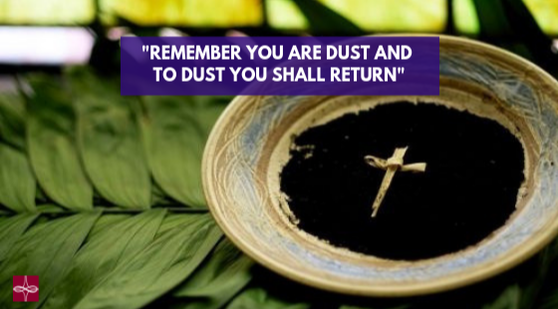

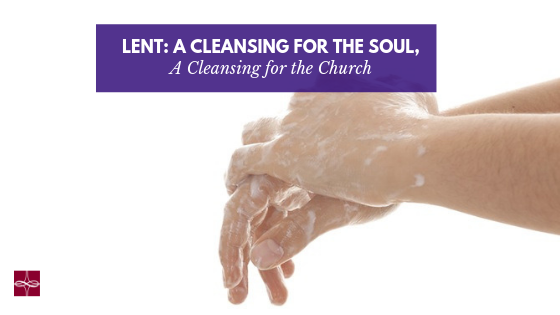

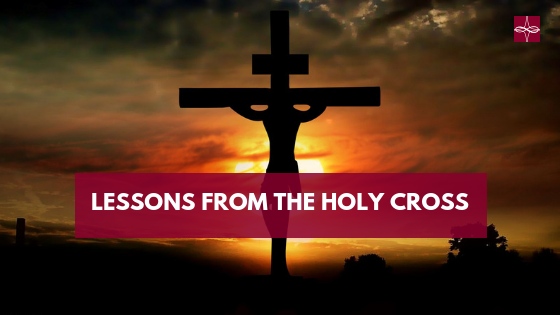
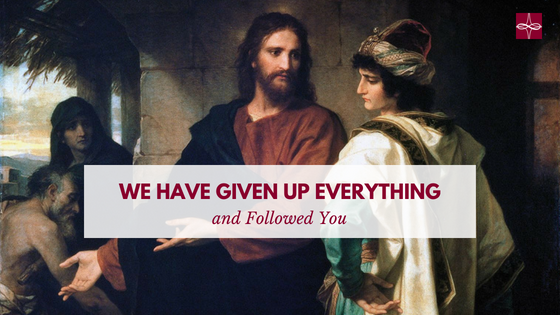
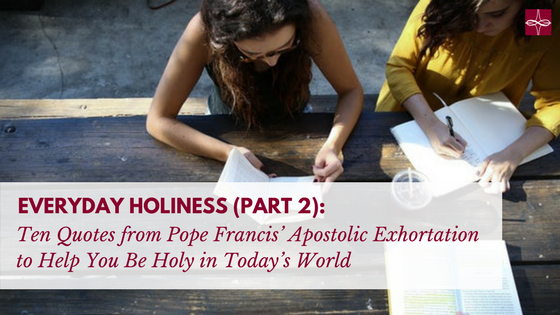

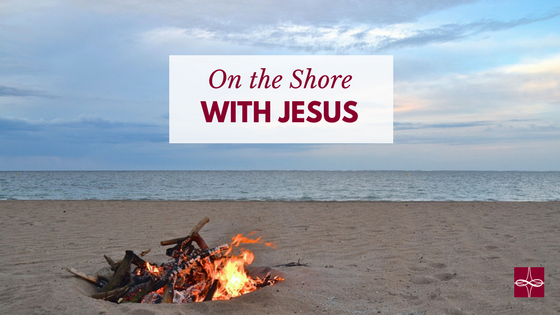

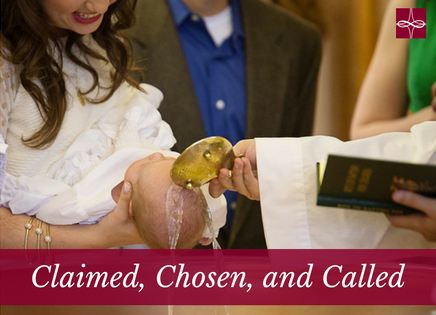



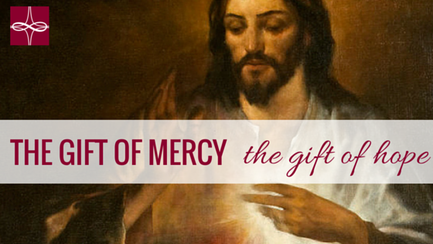

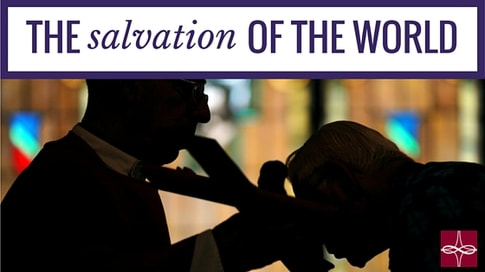


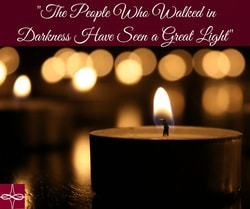

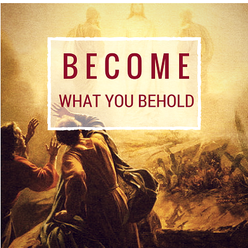

 RSS Feed
RSS Feed